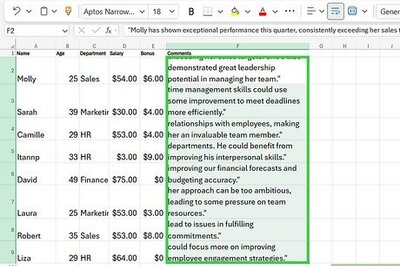
views
Monsoon is the best season to enjoy. Finally, the scorching heat ends, bringing pleasant weather. The Rain God showers us with well-awaited droplets of heaven. People relish seasonal delicacies, and there is no more water shortage. However, beware of the diseases common during the monsoon season, and take care of your health.
There are certain diseases prevalent in the monsoon season. Dr Pawan Kumar Goyal, Senior Director – Internal Medicine, Fortis Hospital, Shalimar Bagh helps us understand the common diseases, their symptoms, and how to prevent them.
Monsoon Fever
Monsoon fever, also known as seasonal fever or rainy season fever, describes various illnesses that become more prevalent during the monsoon season. The heavy rains and high humidity create favorable conditions for the spread of certain infections, particularly mosquito-borne diseases and water-borne illnesses. Here are some key aspects of monsoon fever:
Symptoms
Symptoms of monsoon fevers can vary depending on the specific illness but often include:
- High fever
- Chills
- Body aches and pains
- Headaches
- Fatigue
Gastrointestinal symptoms such as nausea, vomiting, and diarrhea (for water-borne diseases)
Primary Causes of Monsoon Fever
Mosquito-Borne Diseases:
- MalariaCaused by Plasmodium parasites transmitted through the bite of infected female Anopheles mosquitoes. Symptoms include fever, chills, headache, and vomiting.
- Dengue FeverCaused by the dengue virus, transmitted by Aedes mosquitoes. Symptoms range from mild fever to severe flu-like illness (dengue hemorrhagic fever) with potentially fatal complications.
- ChikungunyaCaused by the chikungunya virus, also transmitted by Aedes mosquitoes. Symptoms include sudden onset of fever and severe joint pain, often accompanied by rash and headache.
- Zika VirusTransmitted by Aedes mosquitoes, Zika virus infection can cause mild fever, rash, joint pain, and conjunctivitis. It is of particular concern for pregnant women due to potential birth defects.
Water-Borne Diseases
- Typhoid FeverCaused by Salmonella typhi bacteria, usually spread through contaminated food or water. Symptoms include prolonged fever, headache, constipation or diarrhea, and sometimes a rose-colored skin rash.
- CholeraCaused by Vibrio cholerae bacteria, transmitted through contaminated water or food. Symptoms include severe watery diarrhea, vomiting, and leg cramps, leading to rapid dehydration and electrolyte imbalance.
- LeptospirosisCaused by Leptospira bacteria, transmitted through contact with water or soil contaminated with urine of infected animals (especially rodents). Symptoms range from mild flu-like illness to severe body aches and vomiting.
Viral Respiratory Infections
- Influenza: Seasonal flu viruses can circulate more easily during the monsoon due to increased human contact in enclosed spaces. Symptoms include fever, cough, sore throat, body aches, and fatigue.Other Infections:
Hepatitis A & E: Viral hepatitis infection spread through contaminated food or water. Symptoms include fever, jaundice (yellowing of the skin and eyes), abdominal pain, and fatigue.
Prevention
To prevent monsoon fevers, it is important to take certain precautions:
- Mosquito controlUse mosquito repellents, mosquito nets, and wear long-sleeved clothing to avoid mosquito bites.
- HygieneDrink clean, boiled, or purified water. Practice good hygiene, especially hand hygiene before eating and after using the restroom.
- Avoiding stagnant waterStay away from areas with stagnant water as they are breeding grounds for mosquitoes.
- VaccinationWhere available, vaccines for diseases like typhoid and hepatitis can provide protection.TreatmentTreatment for monsoon fevers depends on the specific illness but generally involves:
Rest
Fluid intake to prevent dehydration
Medications to reduce fever and alleviate symptoms
Antibiotics or antiviral drugs as prescribed by a healthcare provider
Seeking Medical Attention
Seek medical care if you develop persistent high fever or severe symptoms, such as:
Persistent, recurrent, or uncontrolled vomiting
Confusion or drowsiness
Breathing difficulty
Severe abdominal pain or decreased urine output
By taking these precautions and being aware of the symptoms, you can enjoy the monsoon season while staying healthy and safe.



















Comments
0 comment